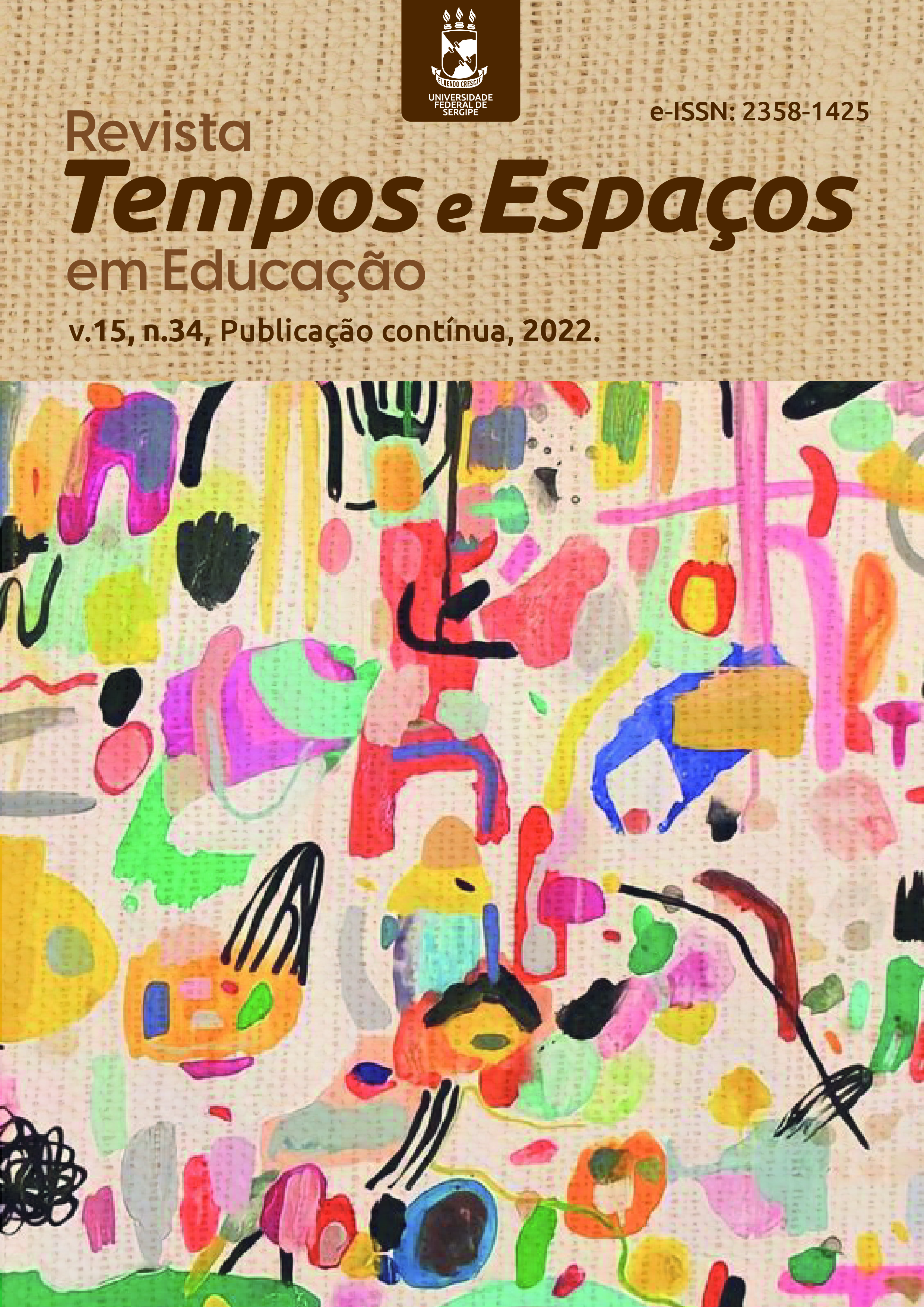Features of interdisciplinarity of modern pedagogy
DOI:
https://doi.org/10.20952/revtee.v15i34.16936Keywords:
Modern Pedagogy, Interdisciplinarity, Student’s Personality, Specialists, Methods of teachingAbstract
The most important task of modern education is the formation of a highly developed personality capable of effectively assimilating knowledge, making non-standard decisions and thinking creatively. Modernization of the content of education, renewal of teaching methods and means are the basis of new pedagogical searches. The study of the problem of interdisciplinarity is important for the development of scientific, theoretical foundations of pedagogy, as well as for the practical activities of teachers. Interdisciplinarity will be able to provide a unified methodological basis for the subject system as a whole by highlighting systematizing scientific ideas that facilitate learning in all subjects. Interdisciplinary approaches are in line with the pressing problems of modern education. Since academic subjects are built in the logic of specific sciences, and all of them to one degree or another are related to each other, it becomes necessary to establish interdisciplinarity. Thus, the main purpose of the article is to determine the basic features of the interdisciplinarity of modern pedagogy. The research was carried out using the following theoretical methods: systems analysis and synthesis, induction and deduction, comparison, classification, generalization and systematization, idealization and abstraction.
Downloads
References
Cordeiro, E. de P. B., Marques, M. M. C., & Costa, M. T. N. (2021). Socio-emotional education: paths to inspire studies, research and practices. Revista Tempos E Espaços Em Educação, 14(33), e13729. https://doi.org/10.20952/revtee.v14i33.13729
Shkabarina, M.;et al. (2020) Formation of Future Educators’ Professional Training for Introducing Social Experience by Means of Innovative Technologies of Education to Senior Preschoolers.Behavioral Sciences, 10.2, p.42.
Arora, A. K., & Srinivansen, R. (2020). Impact of pandemic COVID-19 on the teaching-learning process: A study of higher education teachers. Parabandhan: Indian Journal of Management, 13(4), 43–56. DOI: https://doi.org/10.17010/pijom/2020/v13i4/151825
Bansak, C. & Starr, M. (2021). Covid-19 shocks to education supply: how 200,000 U.S. households dealt with the sudden shift to distance learning. Review of Economics of the Household. https://doi.org/10.1007/s11150-020-09540-9
Suissa, J. (2015). Character education and the disappearance of the political. Ethics and Education,10(1), 105–117. DOI: https://doi.org/10.1080/17449642.2014.998030
Vlieghe, J, Zamojski, P (2020) Redefining education and politics: On the paradoxical relation between two separate spheres. Policy Futures in Education. Epub ahead of print 3 August 2020. DOI: https://doi.org/10.1177/1478210320943808
Yuk, Fai Leung. (2003, January). The Essence of Interdisciplinary Research – Mindset Matters. ScienceCareers.Retrieved from http://sciencecareers.sciencemag.org/career_magazine/previous_issues/articles/2003_01_31/noDOI.17989095503419373115
Florian, L., & Black‐Hawkins, K. (2011). Exploring inclusive pedagogy. British Educational Research Journal, 37(5), P. 813-828. https://doi.org/10.1080/01411926.2010.501096
Ito, J. P. (2013). Hypermetrical schemas, metrical orientation, and cognitive-linguistic paradigms. Journal of Music Theory, 57(1), 47-85. https://doi.org/10.1215/00222909-2017106
Phoenix, C., Osborne, N. J., Redshaw, C., Moran, R., Stahl-Timmins, W., Depledge, M. H., ... & Wheeler, B. W. (2013). Paradigmatic approaches to studying environment and human health:(Forgotten) implications for interdisciplinary research. Environmental Science & Policy, 25, 218-228. http://doi.org/10.1016/j.envsci.2012.10.015
Rana, M. (2017). Disability in Children's Literature. Tropes, Trends and Themes. Interjuli. Internationale Kinder- und Jugendliteraturforschung. https://doi.org/10.5167/uzh-75903
Úcar, X. (2013). Exploring different perspectives of Social Pedagogy: towards a complex and integrated approach. Education Policy Analysis Archives, 21(36), 1-19. https://doi.org/10.14507/epaa.v21n36.2013
Klein, Julie T. (2002) Interdisciplinary Education in K-12 and College - A Foundation for K-16 Dialogue. New York.
Lenoir, Y., Larose, F., Geoffroy, Y. (2000) Interdisciplinary Practices in Primary Education in Quebec - Results from Ten Years of Research. In: Issues in Integrative Studies, Vol. 18, 89-114.
Smelser, Neil J. (2004) Interdisciplinarity in Theory and Practice. In: Camic, Charles; Joas, Hans, eds. The Dialogical Turn - New Roles for Sociology in the Postdisciplinary Age. Lanham, MD, 43-64
Published
How to Cite
Issue
Section
License
À Revista Tempos e Espaços em Educação ficam reservados os direitos autorais pertinentes a todos os artigos nela publicados. A Revista Tempos e Espaços em Educação utiliza a licença https://creativecommons.org/licenses/by/4.0/ (CC BY), que permite o compartilhamento do artigo com o reconhecimento da autoria.



